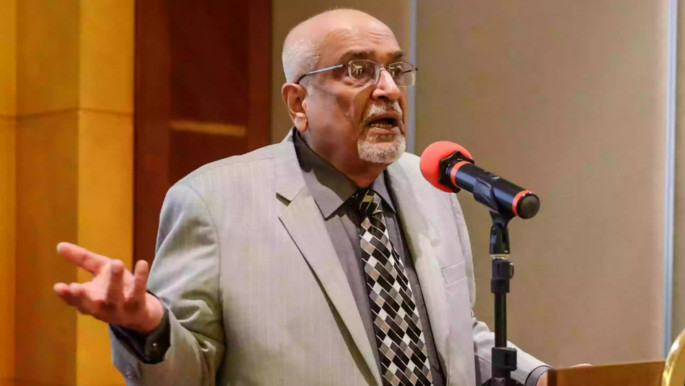Bangladesh must dismantle the long-standing political–bureaucratic–business alliance that has undermined competition and entrenched crony capitalism, economist Dr Debapriya Bhattacharya said on Saturday, stressing that only comprehensive reforms can deliver a fairer and more resilient economy.
Speaking on the opening day of the three-day “Bay of Bengal Conversation 2025,” organised by the Centre for Governance Studies (CGS) at a Dhaka hotel, the distinguished fellow of the Centre for Policy Dialogue (CPD) said that over the past decade and a half the national development narrative had disproportionately benefited politicians, businessmen and bureaucrats.
According to him, these three groups “avoided competition” and gained control over key sectors—from banking to power—creating what he described as a system that evolved from nepotistic capitalism into outright “predatory governance.”
Chief Justice Syed Refaat Ahmed inaugurated the conference, which has drawn more than 200 speakers, 300 delegates and over a thousand participants from 85 countries, as CGS announced earlier.
Reforms Start Beyond Government — and Must Be Sustained
Debapriya cautioned that while planning reforms is easy, implementing them remains “the hardest task.” Reform, he argued, does not begin or end with the government alone; it is achieved through collective and continuous effort from citizens, institutions and stakeholders.
“Bangladesh is now precisely in this phase,” he said, calling for momentum and discipline to carry the process forward.
Drawing from the work he is leading on the interim government’s white paper, Debapriya said the past 15 years narrowed the concept of development into mere strategies and execution—stripping it of broader social and institutional dimensions.
‘Reform Romance’: Justice, Reform and Elections at the Centre
Using the metaphor of the 1980s film Romancing the Stone, he said Bangladesh’s reform journey similarly involves a mix of adventure, romance and humour, and that the nation is currently driven by three overarching goals: justice, reform and elections.
“Reform lies at the centre, connecting the other two,” he said, adding that the country has no option but to move forward with nation-building.
Reform as the Only Response to Structural Challenges
Bangladesh is searching for a new political settlement, and the biggest challenge, he said, is how to break the entrenched anti-competition coalition in politics and the economy.
“The answer is reform,” he asserted.
Effective reforms, he noted, can resolve long-standing problems, boost efficiency, allocate resources correctly and ensure inclusion. But reform design has no fixed manual—every country must find its own path.
He emphasised that reforms must be strong, coherent and realistic, recognising that economic policymaking is inherently complex.
Lessons from Bangladesh’s Own Experience
Debapriya said Bangladesh’s reform history shows that neither a strong nor a weak state guarantees success. Instead, reforms thrive on vision, planning, coordination and transparency—whether the goals are short-term or medium-term.
Most crucially, he said, reforms must be anchored in political commitment and shaped by citizen participation.
“Change creates its own opportunities,” he said. “But without foresight, coordination and public engagement, reforms cannot achieve the transformation Bangladesh now seeks.”

